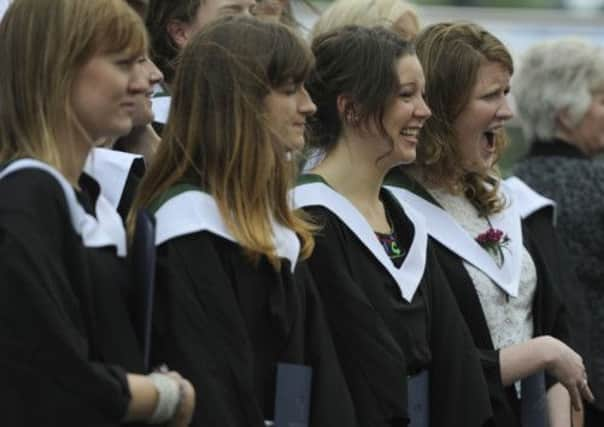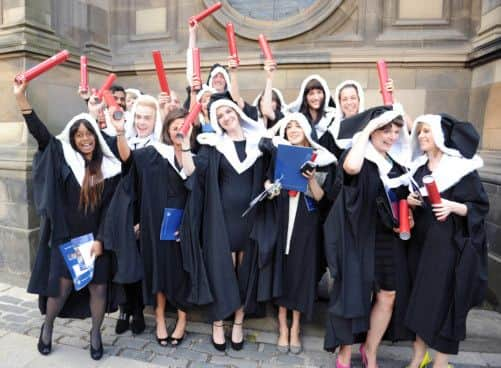On a mission to pursue a degree of excellence


So what about the Scottish universities? Do we really understand what they are, what they do, and how they can bring further benefits?
Just over two years ago I was asked by the Scottish Government to chair a review of higher education governance. One of the very interesting aspects of the work we undertook was the dialogue we had with various stakeholders, representing the universities themselves, students, staff and trade unions, industry, state agencies and interested members of the public. Almost everyone agreed that Scotland’s universities played a vital role in the country’s development, and that overall they were hugely successful.
Advertisement
Hide AdAdvertisement
Hide AdBut beyond that consensus there were some complex and varied views of what we as a society expect universities to deliver. We want them to teach students, but that’s not the whole story. We want them to be successful at hosting new inventions and discoveries; we want them to be a magnet for investment and employment; we want them to promote the arts and culture; we want them to stimulate debate; we want them to address social exclusion and discrimination; we want them to be good employers; we want them to be successful exporters of high value services; we want them to be developers of high quality and aesthetically pleasing buildings and facilities. And we want them to do all of this for free, or at least without being an excessive drain on public money.


It seems clear to me that if we want all of these benefits from our higher education system, we need to look more closely at the institutions themselves and what roles they can play. They are not all the same. They have varied origins and histories, and have come into the system with different missions. Some are very old, and some are quite new. Some are relatively big, and some quite small. Some have a very wide portfolio of subjects, programmes and activities, while others are more specialised (and in a small number of cases, very specialised).
Co-ordinated cluster of higher education
The diversity of the Scottish system is not unique or even unusual. Our neighbours in England have it also, and in the United States there is an amazing array of institutions with different strategies, different local or regional or international engagements, different target populations for the student body, and so forth.
Scotland is a small country, however, with a much more integrated society. It needs diversity, but a diversity that is more networked than it would need to be in a larger country. In order to present itself as a knowledge-intensive country, Scotland needs to see its universities not as a set of institutions divided into groups pursuing different objectives, but as a co-ordinated cluster of higher education institutions, with a diversity of missions but an overall unity of purpose.
For that to succeed, universities need to collaborate closely where that is appropriate, but also need to be accorded parity of esteem and support. We are too small to have an elite circle of institutions from which some universities are excluded. We can and should compete with each other as we pursue excellence, but we should not have to compete for support and approval by government or its agencies.
Ensuring Scotland benefits from the skills of graduates
One of the interesting, and positive, aspects of Scottish higher education is that the so-called “mission groups” (like the Russell Group, the University Alliance, and so forth), while having members in Scotland, have not really carried much weight, nor have they created divisions in inter-university relations. On the other hand, the view is sometimes expressed that there are some “elite” universities, with the obvious implication that others are less important or influential. As a country we cannot afford that, and should resist it.
My own strategic priority for my university, Robert Gordon University, is that we will seek to lead public debate about higher education, and lead in those fields in which we have or can gather special expertise. In partnership with others, we shall ensure that Scotland benefits from the quality and skills of our graduates, from our ambitious development of intellectual property and scholarship that changes lives, from our ability to stimulate economic and cultural development, and from our capacity to pursue constant innovation. For Scotland to thrive, all universities should be encouraged to be leaders, so that this country will be recognised as the home of educational renewal innovative excellence. That should be everyone’s mission.
• Professor Ferdinand von Prondzynski is principal and vice-chancellor of Robert Gordon University, www.rgu.ac.uk